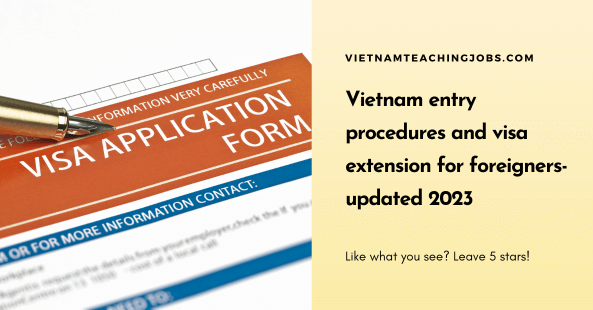As the plane began it’s descent into Noi Bai Airport, Hanoi, my breathing was shallow and my palms sweaty. The ‘fasten your seatbelt’ sign lit up and I gulped. Loudly. No, I am not a nervous flyer. In fact, I quite enjoy flying. No… it was much more terrifying than that.
Making the decision to pack up and move to Vietnam in search of English Teaching work, without ever having actually visited the country (or Asia for that matter), was one of the most nerve-racking things I’ve ever done. Armed with my 150 hours of TEFL training and a copy of my degree certificate, I was hoping for the best… and preparing for the worst.
I had heard mixed reviews about Vietnam: the life threatening traffic, the barbaric practice of eating dog, the unhygienic food and questionable manners of the locals. I needn’t have worried. As true as a lot of this may be, I loved it as soon as I arrived.
Yes, Vietnam takes a little bit of adjusting to and there are certain things which I will never understand. This, however, is all part of its charm and if I could offer one piece of advice to anyone considering Vietnam as a TEFL location, it would be: do it!
Teaching English in Vietnam is a thriving business and it couldn’t be easier to find work here. There is a massive impetus upon learning English at the moment, with a National Foreign Languages Project in place, aiming for most of Vietnam’s students to be using English confidently in their study, daily communication and work by 2020.
There are numerous Language Centers, Kindergartens, International Schools, Agencies and Private Schools, all dedicated to teaching English to the students of Vietnam. This abundance of opportunity combined with the all year round hiring system, all makes for a very lucrative and fairly straightforward experience.
As well as the high volume of teaching positions, it is hard not be enchanted by the local markets selling fresh flowers and fruit, the pajama two sets that the local ladies wear with pride, the wonderful food and the ridiculously cheap, freshly brewed beer.
Typical Working Conditions
The quality of life for a TEFL teacher in Vietnam is fantastic. The standard average wage for a TEFL Qualified, degree holding, native English speaker is around $20 per hour. This is often higher depending on your experience and qualifications. I arrived in Hanoi with no prior teaching experience and was able to find a part time job in a Language Centre, teaching children for $20 per hour, within a couple of days. There are opportunities to teach all ages, from kindergarten to adult, although finding adult work is a little more difficult to come by.
Essentially, there are two routes you can go down as an English teacher in Vietnam. You can sign up for a long term ‘full time’ contract at one of the major schools or you can take on multiple part time contracts at several smaller centers.
A standard full time position is considered to be around 20 teaching hours per week. However, there are opportunities to take on less, or more, hours depending on your goals and priorities.
Options
The first option will usually provide you with a steady job, set hours, health insurance, assistance with your work permit, holiday pay and often a tidy bonus upon completion of one year’s contract. You can expect to earn up to and around $1500 – $2000 per month in this sort of position. These types of jobs require a high end TEFL Qualification, such as a CELTA, and will entail applying for a working visa.
Usually, the school at which you accept a teaching position will help you with this process. This will often mean signing a minimum contract of a year with that particular school. The more reputable schools and language centers will often cover the cost of your work permit and, while some schools might try and get away with it, it is usually possible to come to an agreement in sharing the cost. In order to obtain a working permit you must have the following:
– An internationally recognized TEFL certificate (original document)
– A health check from an approved hospital (this is very easy and cheap to have done in Vietnam)
– A University degree (original document)
– An academic transcript (original document)
– A police clearance check (original document, not more than 6 months old)
The second option is a more casual route; something that is not as readily available in nearby TEFL countries such as Japan and South Korea. Many people are attracted to the ‘no strings attached’ lifestyle that is available in Vietnam. It is possible to enter the country on a three month business visa (which, depending on your nationality, should cost around $90-$130).
With this business visa, you can easily find cash-in-hand work at many of the smaller language centers. This will require you to renew your business visa at the end of every three months (at a similar cost as the initial visa but with no need to leave the country). This option won’t provide you with the benefits of signing up full time with one school but it will allow you to create your own timetable and working hours. It is fairly common to have multiple jobs of this nature as these centers usually offer contracts of around three or four teaching hours per week. Three or four of these part-time contracts can provide you with enough money to live a fairly comfortable lifestyle. It is possible to survive on as little as 10 hours upwards per week in Vietnam.
Unfortunately, many of these Language Centers run their classes in the evening and weekends, which can hamper your social life a little.
Tutoring
An excellent way to supplement your teaching income is to take on some private tutoring work. I actually know a few people who earn a decent living purely on private tuition. Again, the rate starts at around $20 and can often go up as high as $30 per hour. In Vietnam, word of mouth is very important and it may take a while to get settled in and make some contacts to point you in the right direction. Once you have secured your first private gig though, the rest should come fairly easily. Private tutoring comes in the form of most age groups from very young to adults looking to brush up on Business English.
Qualifications
Usually, job adverts will specify that they are looking native English speakers with a University degree and at least 100 hours TEFL Qualification. While this is essential for many centers (and particularly if you are looking to acquire a working visa) it is not unheard of to find work without holding a degree. There are schools where the only hard and fast requirement is that you are a native English speaker. It is a sad fact that, honestly, a Philipino teacher with perfect English will struggle to find work.
Finding your dream job
Now for the crucial part, how to actually find these lucrative jobs?!
A pressing question for a lot of aspiring TEFL teachers is whether it is better to secure a job before arriving in Vietnam or wait until you arrive. It is completely feasible to do either. If you have a degree and a high level TEFL qualification, such as a CELTA, then you should find it fairly easy to secure a contract before leaving your home turf. This provides you with security for your arrival but, on the other hand, doesn’t allow you to check out the school or the area.
It is very easy to pick up work once you arrive in Vietnam. The following websites and groups should be your first port of call when arriving to the country.
The New Hanoian (TNH): http://tnhvietnam.xemzi.com
Or now one more big site: www.vietnamteachingjobs.com
Despite the title, The New Hanoian caters for North, South and Central Vietnam and is where the majority of expat teaching jobs will be advertised. It is an on the pulse, up to date website that brings people, places and jobs together. A one-stop-shop for all things Vietnam, providing reviews, recommendations and listing, it is an essential source for every expat.
Additionally, Vietnam Works is a popular website to check for jobs: http://www.vietnamworks.com/
Where to base yourself?
The majority of teaching positions can be found in Hanoi and Ho Chi Minh City. There are also opportunities available in up-and-coming coastal Haiphong and Danang, as well as some more rural towns.
Busy Saigon!
When arriving in Vietnam, I visited both Hanoi and Saigon before making the decision to look for work in Hanoi. They are two very different cities and it all depends on what floats your boat. Saigon is massive. There are 24 districts and I think I managed to set foot in a grand total of three during my visit there. It has a much more international vibe than Hanoi and if partying from dusk until dawn is your thing, Saigon is the place for you. There is a decent bus system in Saigon which can make life a little easier, although the chosen transport method of the majority of expats is still the motorbike. It can be quite hard to get by without one. (Don’t ask about licenses… it is almost impossible to get one and it is an accepted truth that the traffic police turn a blind eye to ‘tays’ (foreigners) on motorbikes).
Sleepy Hanoi!
Charming Hanoi is a lot less Westernised than it’s big brother. It has a midnight curfew which is enforced to a certain extent. Many bars, clubs and restaurants really do start shutting up shop around 11pm but there is always an after party to be found and this can actually add a little something to the whole nightlife experience (I’ll admit, it can also get rather tedious when you have to wander around and wait up dark alleys waiting for someone to lead you to that evenings chosen hotspot). Hanoi has a lot of character and feels more manageable as a city.
Both cities have a lively expat scene. Whatever your interests, whether it be martial arts, crafting, music or simply drinking bia hoi (local beer), you will find it easy to meet like-minded people to hang out with. There is a growing live music scene in both cities and it is possible to find gigs of some description, every other night.
Featured Job
Here are some useful websites to find out about what’s going on:
Facebook groups:
Hanoi Massive
Couchsurfing Hanoi
Couchsurfing Saigon
Expats Living in Saigon
Websites:
http://tnhvietnam.xemzi.com
www.vietnamteachingjobs.com
http://wordhanoi.com/
http://www.wordhcmc.com/
Living costs
Living costs are exceptionally cheap in Vietnam. A meal at a local food stall (which can be found everywhere) will set you back around $2. This will be for a traditional dish of Pho (noodle soup) or similar. If you want to ‘splash out’ and eat Western food, you can easily go for a nice meal in a restaurant for around $5-7. Local beer is available everywhere in Vietnam and you can get a glass of organically brewed ‘bia hoi’ for less than 50 cents. Local markets provide fresh fruit and veg in abundance, just be aware that your status as a foreigner will leave you exposed to massive overcharging. Always be prepared to haggle your way down to around half of the originally quoted price. It is possible to find more ‘Western’ supermarkets where the prices are set and you can find a good selection of groceries for reasonable value.
Accommodation
Unlike other TEFL destinations, schools here generally don’t help you to find accommodation. That’s left down to you but fear not, it is surprisingly easy to do. It is possible to find short term lets or longer contracts, depending on what suits you. A room in a shared house costs, on average from $150-$250, depending on the quality of the room and the area. $250 will get you a nice room in a decent house, located in a good area. For $150 you can still get a decent room but it may be smaller, or a little further out of the center. Bills in general are not included in this price and for WiFi, electricity, water and usually a weekly cleaner, you can expect to pay around $30-50 per month, depending on how much you use the air con! The best resource to find accommodation is: http://tnhvietnam.xemzi.com/.
Setting up a bank account
Opening a bank account in Vietnam is fairly easy and recommended banks are ANZ Bank, Sacom Bank and HSBC. All you usually need is your passport and a Vietnamese address. You will have to fill out lots of forms and the card may only be a cash withdrawal card, making it difficult to transfer money out of the country. There are ways around this and usually your school will be able to help you.
Schools
Finally, here is a list of reputable and recommended schools to work for. As with everywhere, always be aware of schools that act in any way unprofessional.
ILA Vietnam
http://www.ilavietnam.com
Language Link
http://www.languagelink.edu.vn/
Cleverlearn
http://cleverlearnvietnam.vn/
British Council
http://www.britishcouncil.org/vietnam.htm
EIV International Education
Compass Education
This list is by no means exhaustive. There are countless Language Centers, Schools, Universities and Kindergartens that are always looking to recruit new TEFL teachers.
Vietnam is currently a land of opportunity. If you are looking to experience life in a new culture, earn enough money to live an extremely comfortable lifestyle, make lots of friends and work in a rewarding and fun teaching environment, this could be the destination for you. And I promise, you will master the art of crossing the road. Eventually.
Source:
By Siobhan Smith
You can find more articles by Siobhan at her blog which is all about living and teaching in Vietnam, as well as travel in SE Asia: http://overdueadventure.
If you have any questions for Siobhan or also have experience teaching English in Vietnam and would like to add some additional advice for prospective teachers please leave your reply in the comments section at the bottom of the page.




